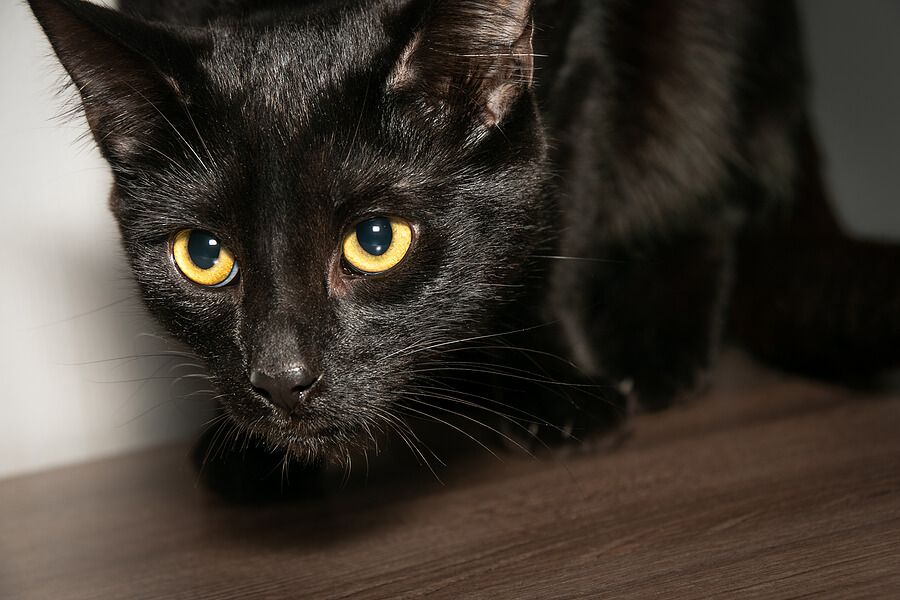Why Does My Cat Crouch? Understanding the Fascinating Feline Behavior
If you've spent time around a cat, you know how expressive their movements are, whether twitching their tails, arching their backs, or flattening their ears. These movements reveal a whole range of emotions.

That's good because communicating with our pets can be tough - especially when they aren't feeling well. While body language can't necessarily diagnose a cat's illness on the spot, it may signal that a trip to the vet or something else to address discomfort is needed. Understanding our cat's movements can help us be better, more responsible pet owners.
What is a crouched position, exactly?
A cat crouching low to the ground might be sitting quietly, or she might be on alert. You'll probably notice her legs are tucked under her, and her body is contained.
Depending on how she's feeling, you'll notice other important body languages as she crouches. For instance, pay attention to her tail position, her head position, and her ear position. Also, pay attention to her eyes - whether she's avoiding your gaze, looking around with wide eyes, or closing them entirely.
This is all common cat crouching body language and can communicate various feelings.
What does a cat crouched down mean?
Let's break down three messages your cat might send you with crouching body language.
1. "I'm feeling relaxed."
If your cat is crouching with closed eyes and a calm body, you can bet he's feeling relaxed. For many cats, the crouched position is a comfortable way to rest, and it's not uncommon to see a cat crouched down in this position, trying to catch a little shut-eye. A relaxed cat will also typically let you pet him, purr, or stretch out. If your cat feels relaxed, there's no need to worry about his crouching behavior.
2. "I'm feeling anxious or scared."
If your cat is crouching with his ears flattened back on his head, his tail wrapped around his body, and a tense posture, it's likely he's feeling scared. If you try to pet him, he may back away or widen his eyes. This posture tells you he's on the defensive because something in his environment makes him uncomfortable.
3. "I'm feeling sick or I'm hurting."
A crouched position can also tell your cat doesn't feel well. If your cat is crouched down, moving slowly, or reacts with a hiss or groan when you try to pet her, these are signs that something is hurting her. Depending on her pain level and what's causing discomfort, she might react more or less. So, paying attention to crouching is good if it accompanies any other unusual movements or sounds.
What should I do if my cat is crouching?
Remove stressors. If your cat seems stressed or afraid, looking at his environment is a good idea. Chaotic environments can make cats feel defensive and nervous. Ensure your cat has easy access to a quiet space where other animals won't bother him, and avoid loud noises in the home if possible.
Offer food and water. If your cat is stressed or not feeling well, she might want food or water nearby. Make both easily accessible, and keep any other animals from these bowls.
Pay attention to your cat's movement. If you're worried that your cat is in pain, paying close attention to how she moves is a good idea. Is she moving slowly? Not putting weight on a paw? Curled up in her crouched position? Any unusual body movements might reveal something specific that's hurting.
Call your vet. Most of the time, crouching body language is completely normal. But it's time to call your vet if you're worried about your cat crouching or if he seems in pain. Explain what you've noticed about your cat's body language - they might advise you over the phone or have you come into the office.
If you have questions about your cat's crouching body language, call us at Forever Vets to schedule an appointment.


